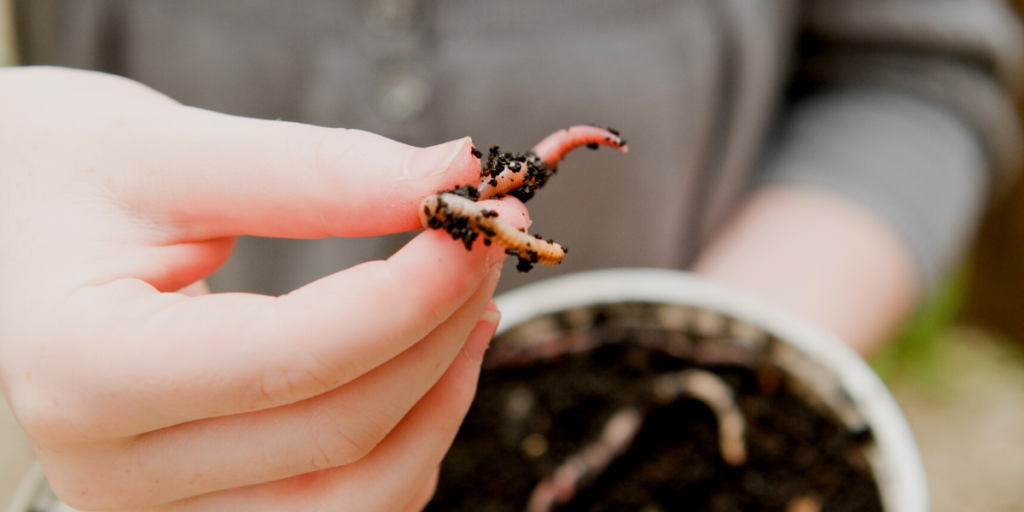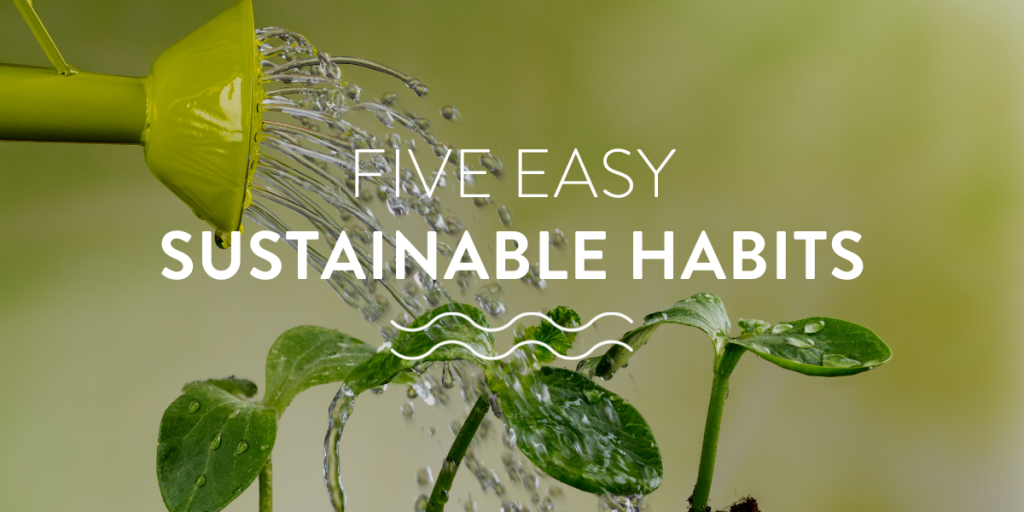If you’re like us, you’ve probably heard of the “three R’s” when it comes to being sustainable: reduce, reuse, and recycle. But there are so many other ways to go green! Have you heard of these five lesser-known, yet powerful ways to utilize resources and reduce waste?
- Dispose of your cooking waste in a way that benefits the environment!
If you’re a fan of cooking, then you know that food waste is inevitable. Food waste is one of the biggest resource-wasters that we have on planet Earth! Have you considered how your cooking scraps and food waste can be put to positive use?
- Composting: Composting involves keeping a collection of organic kitchen waste in an area where microorganisms can break down the organic matter and turn it into a sustainable fertilizer for your garden or houseplants.
To ensure your compost bin gets enough air circulation, place some shredded paper or cardboard on top of the pile (but not underneath) before adding new waste. It’s important not to add meat scraps or oils as these will attract rats and flies instead! The best way to encourage good bacteria growth is by including brown materials like leaves, twigs, and dead plants among your green kitchen scraps like vegetable peelings or fruit pulp from juicing machines.
Make sure to do your own research on sustainable composting programs, gadgets, or facilities in your area if you chose to embark on an organic waste journey! It can be a fun and intriguing way of reducing your environmental impact, as it is often an area that is overlooked. Check out our own blog on composting!

- Worm farming: Worms are also great for breaking down scraps into soil-healthy mulch—but if you don’t have space outside for a worm farm, consider donating your scraps to one!
If you wanted to, you could start raising worms indoors with containers purchased at local hardware stores. Of course, there are plenty of online materials, videos, and resources there to guide you should you choose to start a worm farm! It is way easier than you think, and can be a great way to teach children about food waste and the circular economy.
- Use shampoo bars instead of shower gels and shampoos.
The average person uses up to 20 bottles of hair products, like shampoo and conditioner, per year! This has serious implications for the environment, as all of that plastic has to go somewhere. The manufacturing process of these products requires non-renewable resources (such as fossil fuels) to produce, which contributes to climate change.
Shampoo bars last longer than shower gels and shampoos, and they’re cheaper too! Plus, shampoo bars are more natural: they usually don’t contain any harsh chemicals or artificial fragrances (which often irritate the scalp or hair). Shampoo bars also come in a variety of scents for your personal preference—and more brands are making them by the day! These containerless wonders are a great way to move towards a sustainable lifestyle.
You can even learn how to make your own shampoo bars from home with our easy DIY shampoo recipe! They’re sulfate free, plus you can pick your own scents, shapes, and ingredients.
- Reuse cooking water for your plants.
The next time you cook a big batch of rice, drain off the water and use it to water your potted plants. The same goes for pasta water! Instead of pouring that liquid down your drain, set it aside in your sink and let it cool before transferring it to another container to be used later on as water for your garden! You can even use it for your grass, as well. Just make sure not to leave any food scraps behind—that could attract unwanted pests!
- Dry your clothes with wool balls.
Dryer sheets are expensive, single-use, and often made with microplastic-containing materials. Wool dryer balls, on the other hand, can last for years! They’re made to replace chemical-soaked dryer sheets, and to reduce the waste created by the laundry process.
Wool balls are made from 100% sheep’s wool and can be used as an alternative to store-bought dryer sheets—just toss them into your drying machine with your laundry (no need for special instructions!). They’re great for delicates like silk or lace because they won’t scratch delicate fabrics, but they also work well on regular cotton items too.
If you want to give it a shot yourself but aren’t sure where to start, simply google “dryer balls”– tons of companies have started offering organic and scented versions of this sustainable option.
- Use a menstrual cup to reduce waste from used sanitary products.
Menstrual cups are a reusable, non-toxic alternative to disposable pads and tampons that can be worn for up to 12 hours at a time. They’re flexible, soft, and comfortable— and best of all they can be reused for many years with the proper care!
Single-use pads and tampons create tons of waste each year, and are often made with sketchy chemicals and fragrances. Menstrual cups don’t contain any dyes or chemicals, so they’re better for our bodies too. They are usually made of silicone, which is non-allergenic. The only thing you need to worry about is making sure to keep them clean!
Menstrual cups help reduce so much waste from the landfill, while also making your life just a bit easier during your period!
If you’re looking to live a more sustainable life, these habits can help you get started. They might not be the most obvious ways to go about it, but they are still relatively easy and effective!


